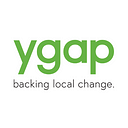When you think of a demo day or a pitch night what probably comes to mind is an image of an entrepreneur nervously standing on a stage, going through slides in front of a packed room, with a panel of “expert” judges and potential investors ready to fire some hard hitting questions all in a matter of 5 minutes.
We know this because we have hosted them. In fact, since the First Gens program began in May 2018 we have hosted demo days for all our cohorts where program participants have pitched their businesses in front of more than 500 people. As an organisation we have hosted over 20 demo days across our global programs in front of hundreds of audiences.
Unfortunately, the problem with this approach is that it doesn’t actually add a lot to the entrepreneur’s understanding of how their businesses are tracking, what the gaps are, and how they can improve. Time is too limited to deep-dive into the venture’s plans and, more often than not, relationships between the panel of experts or investors and the entrepreneurs do not materialise.
For an accelerator program like the ygap First Gens Program, the purpose of any program design element, including a demo-day, should be to add value to the startups, the founders, investors and to the local entrepreneurial ecosystems in which they operate. But over time, we are increasingly learning that demo days are not really helping raise money and therefore not optimising outcomes for entrepreneurs and investors alike and we are not the only ones — organisations such as Village Capital, Ashoka and y-combinator are already innovating beyond ‘traditional’ demo-days. Our own evidence at ygap shows that only less than 5% of the ventures in the First Gens portfolio have received investment at a demo-day and this is true across our global programs.
In addition, demo-days tend to favor entrepreneurs who pitch best (see “Heropreneurship’’), not those who necessarily run the best businesses or have the most potential. In the context of our work with migrant and refugee entrepreneurs, this is concerning because the competitive pitch format can perpetuate investors’ confirmation bias, distorting the understanding of what “successful entrepreneurship” looks like and neglecting the actual and unique value proposition that entrepreneurs from diverse backgrounds offer.
Instead of a demo day, this year we are piloting an alternative ‘boardroom meeting’ approach in order to address some of the shortcomings of the traditional pitch approach and help create real, tangible value for the entrepreneurs, and a safe space for investors and entrepreneurs to connect and develop meaningful relationships. So, what does this alternative approach look like?
1. Intimate, Invite-Only, Closed-Door
We are very selective and intentional about who we allow in the room. We carefully consider and allow a small number of handpicked experts to attend the event. We invite impact investors, successful impact entrepreneurs and social impact experts to be part of a panel made up of people from a variety of backgrounds who actually ask valuable questions and provide feedback and advice, focusing on multiple verticals of the business.
2. The 15/10 Format
Entrepreneurs have 15 minutes to talk about their venture followed by 10 minutes of Q&A. This allows for in-depth discussions that are simply not possible in a traditional three minute pitch. Previously, we have held this type of pitch for some select ventures of our cohort and the feedback we keep receiving from participating entrepreneurs is always extremely positive. The experience is so rewarding and more than anything, prepares them for the ‘real-world’ experience of engaging with investors.
3. Relationship Building
Investors rarely, if ever, make an investment decision solely as a result of seeing a 3 or 5 minute pitch. Investments don’t happen because of pitches, they happen because relationships. Indeed, recent research has shown that one of the most impactful activities that an accelerator program could undertake was to develop one-on-one relationships between entrepreneurs and investors.
Most importantly, this process shifts power dynamics. Instead of an entrepreneur standing in front of an audience, rushing through slides and getting grilled, the entrepreneur sits around a table with experts and investors, leading the discussion and talking through the business, as equals. This process is intentional about creating a safe and inclusive environment that is less about competing and more about getting to know each other, and seeking and receiving feedback on how to improve. Furthermore, entrepreneurs get to exhibit skills more closely related to success as an entrepreneur than a fancy slide deck such as problem-solving and critical thinking.
The ‘board-room meeting” is just one idea, but it’s hardly the only one. Other accelerators and incubators are also adopting alternative techniques ranging from investor “office hours” to group design sessions. Overall, if we want to optimise success for the ventures in our program, rethinking demo-days is just one way to re-evaluate how we create value for entrepreneurs, investors and local ecosystems.
Written by Adelide Mutinda, ygap First gens Program Manager. To learn more about First Gens, head to www.ygap.org/firstgens
